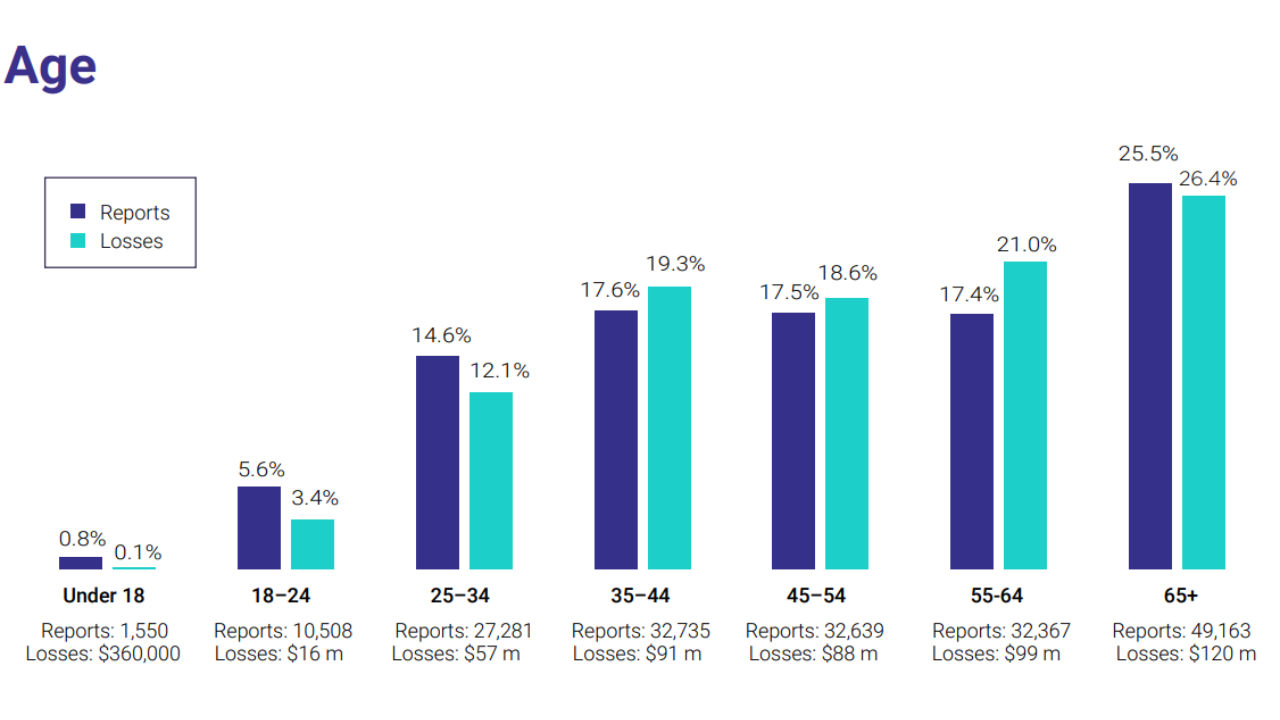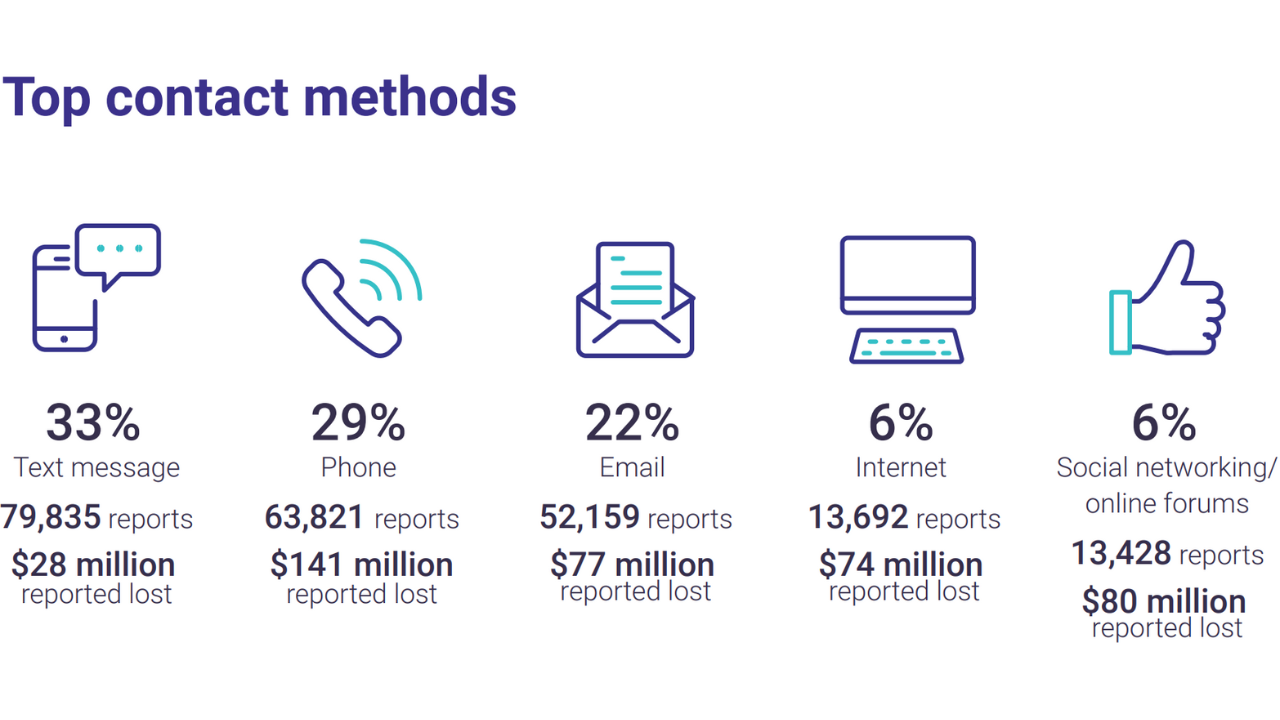During the last year, reports of scams received by the ACCC have gone down, however, the amount of money lost by victims has gone up, according to the watchdog’s report on 2022 scam activity ‘Targeting scams’.
The annual report involves work from Scamwatch, ReportCyber, the Australian Financial Crimes Exchange, IDCARE and other government agencies to compile a picture of the last year in scams.
“Australians lost more money to scams than ever before in 2022, but the true cost of scams is much more than a dollar figure as they also cause emotional distress to victims, their families and businesses,” ACCC deputy chair Catriona Lowe said.
“As scammers become increasingly sophisticated in their tactics, it is clear a coordinated response across government, law enforcement and the private sector is essential to combat scams more effectively.”
This new report, which measures scams reported to the ACCC (and other organisations) across the 2022 calendar year, reveals some troubling figures. Over the year, a record of $3.1 billion was lost to scammers, which is an 80 per cent increase in losses reported during 2021. On average, victims lost $20,000 each over the year (an increase in 50 per cent since 2021).
Despite this, the number of reported scams actually went down. 239,237 scams were reported over the year, while in 2021, 268,622 were reported.

How are people being targeted? Well, according to the ACCC’s report, scammers are using “new technology” to deceive victims.
“We have seen alarming new tactics emerge which make scams incredibly difficult to detect. This includes everything from impersonating official phone numbers, email addresses and websites of legitimate organisations to scam texts that appear in the same conversation thread as genuine messages. This means now more than ever, anyone can fall victim to a scam,” added Lowe.
“There has been an explosion of reported losses to phishing scams in the past year, such as “Hi Mum” and Toll/Linkt text scams, which skyrocketed by 469 per cent to $24.6 million in 2022.”
Over the year, 33 per cent of reported scams took place over text message. 29 per cent were over the phone, 22 per cent over email, 6 per cent over the internet and another 6 per cent over social media.

And the category of scams that saw the most losses was investment scams. $377 million was lost in this category alone over the year, meanwhile, the next largest categories are dwarfed by this figure – $40 million to dating and romance scams and $24 million to false billing scams.
Imposter bond scams, where scammers send victims messages impersonating offering low-risk investment products, were cited as a prevalent trend in the report, as were ‘initial public offering’ scams, where the scammers impersonate companies like Porsche and SpaceX (as cited in the reported), pretending to raise funds.
More sophisticated impersonation scams were also cited as a worrying trend, where scammers have begun appearing more like the companies that they’re impersonating (such as Amazon or Ebay) when making contact with a victim in an attempt to trick them. Fake employment offering scams were also identified, to which young people were particularly vulnerable.
Interestingly, the ACCC cites that, after the data breaches over the year, scam numbers increased. Scammers attempted to impersonate government departments and businesses in the weeks following the data breaches, attempting to carry out remote access or identity theft scams.
The ACCC is advocating for a ‘three-pronged’ approach to preventing scams in Australia.
“First, we need to stop scammers reaching consumers by disrupting phone calls, SMS, email, social media messaging or other ways in which scammers contact would-be victims. Second, we need to make sure consumers are supported with up-to-date information so they have the best chance of spotting a scammer when contacted. Finally, we need effective measures in place to prevent funds being transferred to scammers,” said Lowe.
If you think that you’re being targetted in a scam, the ACCC encourages you to stop (take your time before presenting financial information), think (think about if the message or call could be fake) and protect (act quickly and contact your bank or Scamwatch).
